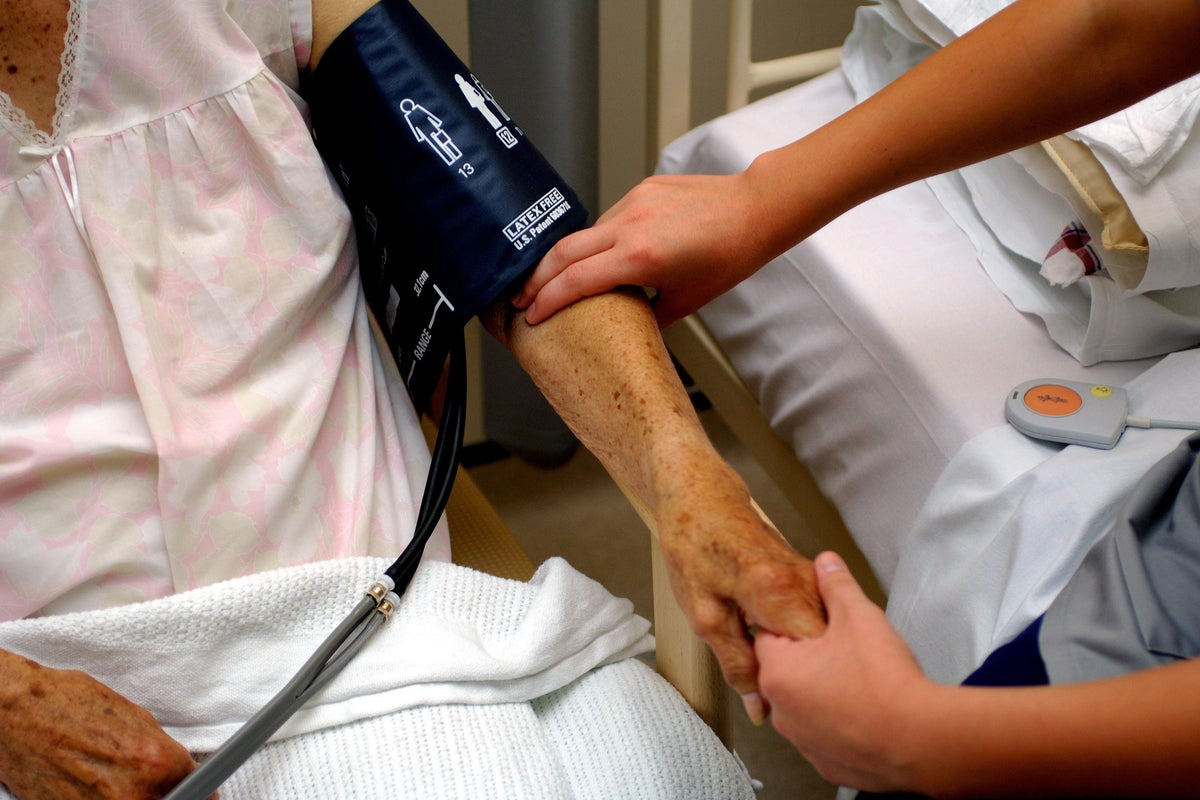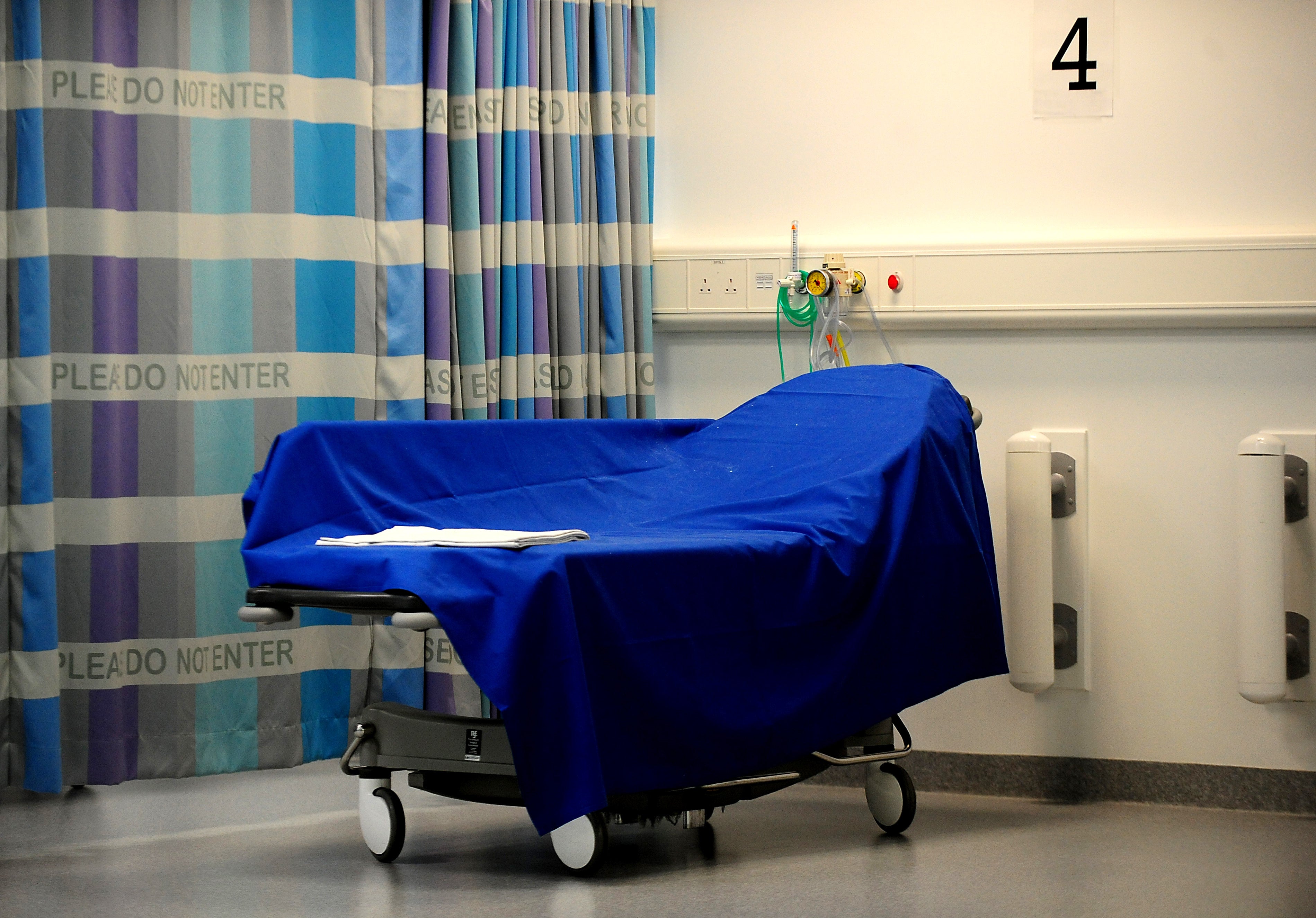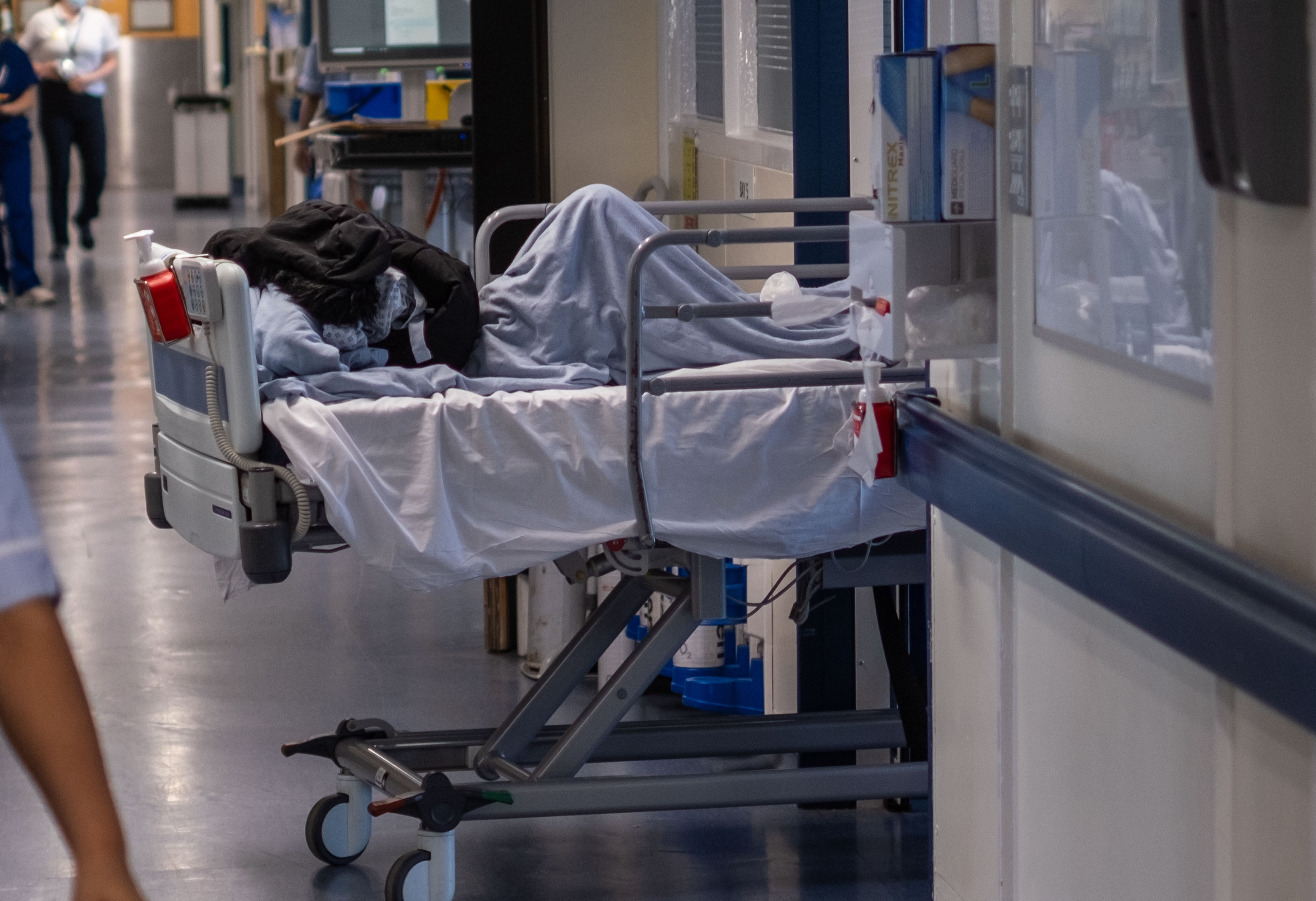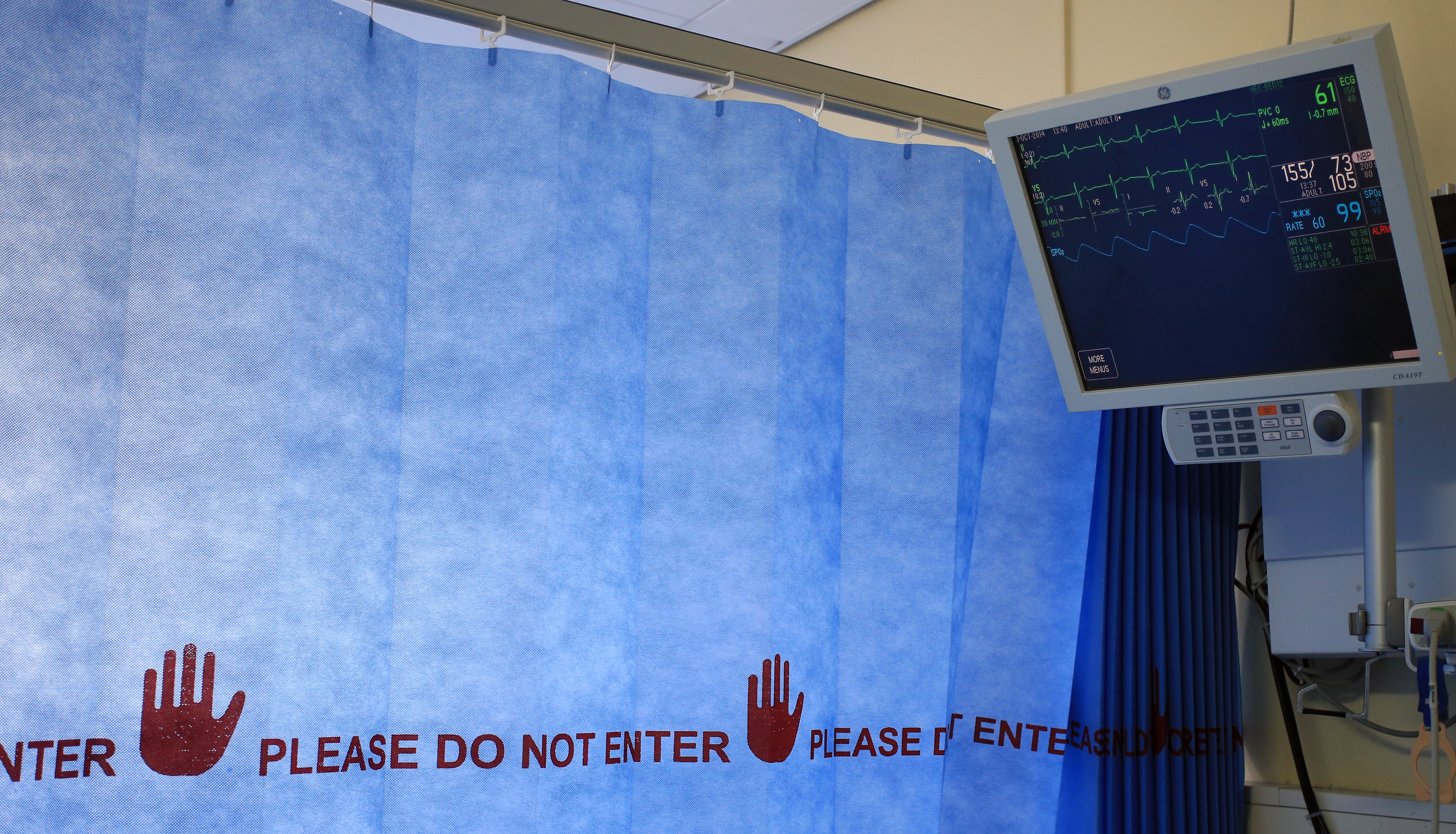
Patients are dying in corridors and sometimes going undiscovered for hours, while sick people are being left to soil themselves, according to a damning report into the state of the NHS.
The Royal College of Nursing (RCN) published new findings into what is going on in England’s hospitals as staff try to manage the number of people needing care.
The “harrowing” report tells of patients sitting for days in chairs – so-called “chair care” – due to a lack of beds, patients piling up in corridors, delays to treatment and the elderly unable to get help due to no call bells and not enough staff.

The RCN called for immediate Government action to end “corridor care”, which it says has become normalised and is not just occurring in the winter months.
The experiences of more than 5,000 nursing staff across the UK, with more than 4,000 from England, contained within the 460-page report highlight how patients are “routinely coming to harm” and deaths are happening.
Testimonies from nurses in the report include:
– Patients regularly treated in bathrooms, shower areas, cloakrooms, bereavement rooms and even viewing rooms (where families visit dead relatives).
The last patient we had had to be changed for faeces in the store cupboard. Totally inappropriate and truly awful for the patient
– “Patients have died on trollies and chairs in the corridor and waiting room. All the fundamentals of care have broken down – we are no better than a developing world casualty.”
– Patients “sometimes wait in (the) emergency department for over 35 hours to go to a ward, just to be put in the corridor. The system is broken.”
– A nurse in the South East, said: “A patient died in the corridor but wasn’t discovered for hours.”
– “Department overwhelmed, which is a daily occurrence…At its worse asking someone to go round and make sure people are still alive.”
– “No bedside tables, patient unable to reach water and food. No bedside chairs, patients kept in bed at all times. No call bells, patient unable to call for help.”
Cardiac arrests in the corridor with no crash bell, crash trolley, oxygen, defibrillator ... straddling a patient doing CPR while everyone watches on
– “Regularly have 25+ patients in a corridor with no privacy or dignity to be examined or have personal care. This inflicts horrendous moral injury in all staff who work in this environment.”
– Elderly patients “cared for in very inhumane and third-world conditions.”
– “I worked throughout Covid-19 and although (it) was a horrendous experience, this lack of care in the broken system is worse.”
– “The last patient we had had to be changed for faeces in the store cupboard. Totally inappropriate, and truly awful for the patient.”
– “We have one cubicle space that is for corridor assessment and toileting – but is often busy, so delays in toileting resulting in people laying in their own urine/faeces.”
– “I am unable to toilet patients appropriately and often some will be incontinent and sit in faeces/urine until there is a space to provide personal care.”
The risk to patients dying and not being noticed is very high, everybody is stretched ...
“Not appropriate care for the patient involved – people are dying in the back of ambulances in the car parks.”
– “For the last two years corridor care is a daily occurrence and we have at least two to four nurses allocated every day for this.”
– “Patient died due to lack of safety equipment by bedside (oxygen, suction, etc). The patient choked, desaturated while reconfiguring bays.”
– “We have had cardiac arrests in the corridor or in cubicles blocked by patients on trolleys in front of them, delaying lifesaving CPR. Despite these ‘never events’, we still are obliged to deliver care in the corridor.”
– “Corridor nursing is tiring, exhausting and soul-destroying. It is not nursing.”
– “A patient had a cardiac arrest in the corridor by the male toilet and died”. Another nurse described “cardiac arrests in the corridor with no crash bell, crash trolley, oxygen, defibrillator … straddling a patient doing CPR while everyone watches on”.
Wards, departments were escalated into areas they shouldn't be all through June, July, August, September - it's become normal to put patients in all sorts of areas
– “We told a patient he was dying as patients were wheeled past and orders shouted across the unit. How is it fair to tell someone they are dying in a corridor?”
– “Patients sit in chairs, sometimes for days waiting for a bed.”
In a media briefing accompanying the report, one nurse, who wished to remain anonymous, said: “This is not nursing, this is firefighting.”
A survey of NHS nursing staff for the study found 67% said they are delivering care every day in overcrowded or unsuitable places. More than nine in 10 said care is unsafe.
One nurse was emotional as she told the briefing there were 30 chairs in their emergency corridor but no extra staff for those patients.
She said: “The risk of patients dying and not being noticed is very high, everybody is stretched….”
I really want to make sure that flu is not used as the excuse for this
She also told how staff experienced violence from patients due to long waiting times, adding the experience of working in the NHS “makes a hole in your soul”.
Professor Nicola Ranger, RCN chief executive, told the briefing the report was “harrowing”, adding staff were leaving because they “cannot do it any more”.
She added: “This winter is absolutely no surprise to any of us.
“Wards, departments were escalated into areas they shouldn’t be all through June, July, August, September – it’s become normal to put patients in all sorts of areas that I can promise you, being a chief nurse for nearly 10 years before this job, prior to Covid, would have been seen as abhorrent and totally unacceptable.
“That’s the real tragedy here, is that care that would have been seen prior to Covid as shocking has been normalised.”
She said the NHS did not have enough beds or nurses to meet demand and that was occurring throughout the year, adding: “I really want to make sure that flu is not used as the excuse for this.”
Regarding “chair care”, Prof Ranger said: “We talk about ‘fit to sit’ as the new mantra.”

Turning to the Government, she said there was a need for ministers to acknowledge the “scale of the problem”, adding that all of this could have been predicted.
Of the Prime Minister’s drive to cut waiting lists, she said: “It’s very difficult to get on top of elective care if you don’t get on top of emergencies. They are two sides of the same coin.”
Asked whether the experience of this winter increased the chances of more industrial action in the near future, she said “this country is in a crisis when it comes to nursing and industrial action is always a last resort”, but she said nurses felt “enough is enough, and actually this has to get sorted”.
She said “patients are coming to harm every day”, adding: “We can now categorically say patients are dying in this situation … ”
Saffron Cordery, interim chief executive, NHS Providers, said the testimonies within the report were “harrowing”.
Health Foundation assistant director of policy Tim Gardner said: “Delays in A&E and resorting to corridor care is not a safe way to run a health service, putting patients at risk of avoidable harm and, as these testimonies highlight, taking a major toll on NHS staff.
“Trolley waits in A&E – one measure of the problems in emergency care – hit record levels in 2024, with over half-a-million patients waiting over 12 hours for admission to a hospital bed.

“Such delays were a rarity before the pandemic but are now the worst we have seen since records began in 2011. This is a symptom of an NHS worn down by the pandemic and the decade of underinvestment that preceded it.”
Shadow health secretary Ed Argar said it was “down to Wes Streeting to act now” to increase capacity in hospitals.
“Frontline healthcare staff work incredibly hard to care for patients, and it is entirely unacceptable for them to be obliged to deliver care in this way,” he said.
“With A&Es already under huge pressure this winter, from flu and other infections, Labour’s decision to cut winter fuel payments for pensioners who need it will only risk making those pressures worse.
“The Government talks about future reforms, but has little to say on what it will actually do to help patients now. It’s down to Wes Streeting to act now to provide further support and increased capacity to our hospitals this winter, as Conservatives did, and as we’ve called on him to do.”
Liberal Democrat health spokeswoman Helen Morgan said: “This report is harrowing. To think that patients are receiving desperately needed care in car parks and dying patients are being left to fend for themselves in corridors should make us sick to our stomachs.
“The Health Secretary must produce an emergency plan to get more beds into hospitals to return bed occupancy rates to safe levels and to bring forward a pandemic-style emergency recruitment campaign to bring staff out of retirement and back into the workforce.”
Duncan Burton, chief nursing officer for England, said: “Increasing levels of demand have resulted in extreme pressures on services, particularly over recent months and one of the toughest winters the NHS has experienced.”
He said building a health service that was fit for the future was a “key priority for the NHS and Government and the NHS is continuing to work hard to deliver improvements across urgent and emergency care for patients and our staff”.







